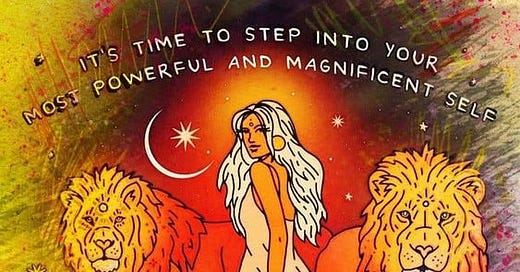
I recently came across a viral TikTok which really struck me: “Oh, she really sees herself, huh?” the woman said, the phrase intended as a dig. How very dare she like herself out loud, it implied.
It’s not the first time I’ve come across something like that. Criticisms like that one litter the comment sections of the confident, powerful women I follow,…
Keep reading with a 7-day free trial
Subscribe to The Greater Conversation to keep reading this post and get 7 days of free access to the full post archives.



